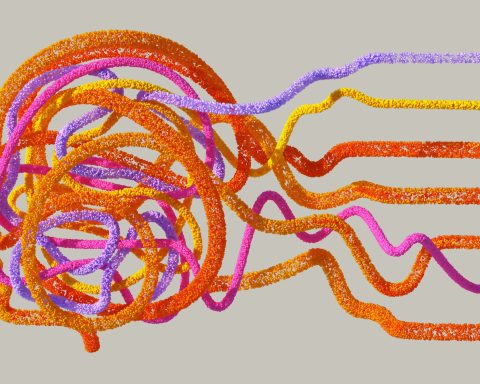Naomi Craft is a GP, Coach, Supervisor, Trainer, and Director at CoachDoc.
Sue Morrison is a GP, Coach, Supervisor, Trainer, and Director at CoachDoc.
The recent COVID-19 pandemic highlighted that while pockets of good practice exist, there is a widespread need for improved communication skills around loss, bereavement, and end of life within health and social care settings, expressed by several professional bodies such as Marie Curie and Diabetes UK.1,2
There is evidence that coaching skills are a powerful tool in communication and professional support,3,4 and are a good starting point for tackling this need. In the last 15 years, growing numbers of medical settings have introduced a coaching approach.5 Coaching is a future-focused conversational technique that harnesses the insights generated in a coaching session to define and achieve goals: it is an active process for the coachee and intends to generate change.
The terms coaching and mentoring are sometimes used interchangeably, but they are different. There is a long tradition of mentoring in medicine, which is generally a less formal practice where a more experienced colleague may guide and advise another more junior one. In a coaching setting, the coach may know nothing about the coachee’s professional world, and may even be in a more junior role.
“The sudden interruption of life as we knew it by the pandemic in 2020 brought our work into sharp focus.”
Both coaching and mentoring differ from counselling and psychotherapy. In the latter there are likely to be unresolved feelings, with the need to address these being the primary aim. The former may often involve looking back over time, yet although this may form part of a coaching conversation it is not the primary goal; coaching conversations look forward, not back in time, with a focus on outcomes rather than problems.
Since 2016, we have devised and delivered skills development designed to support individuals and teams to feel sufficiently resourced to have useful conversations about loss, without the need for specialist training or lengthy time commitments. The feedback we’ve had is that it has enabled participants to reframe their thoughts about loss and mortality, helping them to feel better equipped internally and less afraid to have coaching conversations around these subjects. One of the values of a coaching approach is that it is solution-focused, helping the coachee to reframe their problem. This relieves the clinician of the need (and often stress) to take responsibility to ‘fix’ the issue and contributes to more-sustainable practice.
Our contribution to developing this area of practice began in 2008 after training as executive coaches within the NHS while both being GPs with many years of experience of conversations with patients and families dealing with loss and end of life. As appraisers and trainers, we were also part of the growing conversation about the challenges of modern practice amid a rapidly changing scientific and socio-political context, and the impacts on our own wellbeing as practitioners.
As we thought more about how coaching skills could be used to inform these conversations, we decided to train in end of life coaching in 2015. At the same time, and quite by coincidence, we were both experiencing a profound loss in the family. Although the losses were different — one a family rupture and the other a sibling death from cancer — our personal experiences deepened our understanding, informed our learning, and began to coalesce into something we wanted to share. This is a good example of rich information of individual experience that forms a cornerstone of new learning in the coaching process.
Between 2016 and 2020, we devised and delivered workshops to multiprofessional audiences, some more focused on dying and others more on mortality, which we expanded to explore a variety of losses including loss of health that might happen with a major diagnosis, or loss of status experienced as we age through retirement. Our approach centred on starting with self: using an understanding of self as a resource to be able to inform conversations with others.
“Coaching is about changing the lens on a problem to see things creatively, generating ideas and possibilities.”
The sudden interruption of life as we knew it by the pandemic in 2020 brought our work into sharp focus. We heard repeatedly from health and social care workers that they were dealing with more deaths in a few weeks than they had experienced in their entire careers. Exhausted and frightened colleagues told us they lacked skills or confidence to have these conversations, but also that they lacked the skills to manage their own feelings relating to witnessing death on this scale.
While we work in an NHS that aims to protect life, we also need to help people to achieve the best death they can. The recent Lancet Commission6 recognises the need to bring back the discussion of death back into our lives but it remains a taboo, an admission of an inability to solve or patch up a problem. Even healthcare workers can’t easily name it, referring to it as ‘passing’ or to patients who have ‘gone’. The slew of national reports from Marie Curie, the General Medical Council, and the British Medical Association all described that more skills training was needed.1,7,8
We were keen to support the workforce in these unprecedented days and weeks in early 2020. We connected the pandemic narrative to our learning resources — adapting it further to embed supportive holding spaces within the structure of our material. We developed the framework of our training to create skill-sharing opportunities through the delivery of short webinars, lasting 60–90 minutes, and half-day online training workshops. We found a large unmet need for a supportive space alongside the formative learning needs, and that our webinars and workshops were helping to protect the workforce, reducing their stress.
Coaching is about changing the lens on a problem to see things creatively, generating ideas and possibilities; and it has a future focus. This may seem at odds with the process of loss and dying, but what we know is that life is a series of sequential losses until we die. We have an opportunity to learn to challenge our self-limiting beliefs around death and endings, and to positively reframe even at the end of life.
References
1. McDonald A. A long and winding road: improving communication with patients in the NHS. 2016. https://www.mariecurie.org.uk/globalassets/media/documents/policy/campaigns/the-long-and-winding-road.pdf (accessed 13 Nov 2023).
2. Trend Diabetes. For healthcare professionals: end of life guidance for diabetes care. 2021. https://diabetes-resources-production.s3.eu-west-1.amazonaws.com/resources-s3/public/2021-11/EoL_TREND_FINAL2_0.pdf (accessed 13 Nov 2023).
3. Hult. Coaching qualifications for those made to do. 2023. https://www.hult.edu/en/ashridge/events-and-insights/executive-coaching-what-works-with-erik-de-haan (accessed 13 Nov 2023).
4. Royal College of Physicians. Talking about dying: how to begin honest conversations about what lies ahead. 2021.
https://www.rcplondon.ac.uk/projects/outputs/talking-about-dying-2021-how-begin-honest-conversations-about-what-lies-ahead (accessed 13 Nov 2023).
5. De Souza B, Viney R. Coaching and mentoring skills: necessities for today’s doctors. BMJ 2014; 348: g4244.
6. The Lancet. Lancet commission on the value of death. 2022. https://www.thelancet.com/commissions/value-of-death (accessed 13 Nov 2023).
7. General Medical Council. Good medical practice. 2019. https://www.gmc-uk.org/-/media/documents/good-medical-practice—english-20200128_pdf-51527435.pdf (accessed 13 Nov 2023).
8. Campbell R, English V. End-of-life care and physician-assisted dying: reflections and recommendations. 2016. https://www.bma.org.uk/media/1418/bma-end-of-life-care-and-physician-assisted-dying-volume-three-report.pdf (accessed 13 Nov 2023).
Featured photo by Ankhesenamun on Unsplash.






